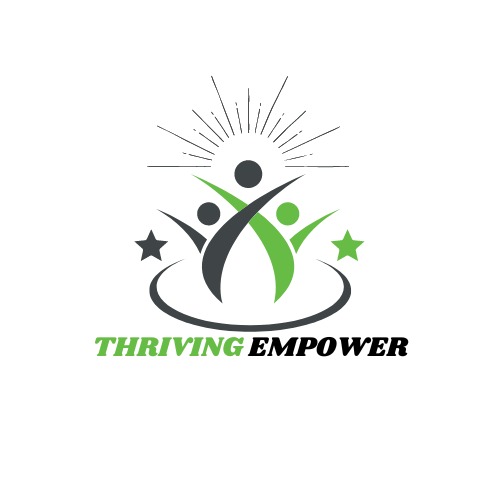It’s no wonder that feelings of insecurity can crawl in and take hold. The fear of not measuring up, the complaining self doubt, the constant comparison to others – these are all too familiar struggles for many of us.
But what if I told you that overcoming insecurity is not an impossible mountain but rather a winding road full of twists and turns, challenges and victory
This article serves as your trusty roadmap, guiding you through the network of self-doubt towards a place of confidence and self assurance.
What are insecurities

Insecurities are like chains that weigh us down, holding us back from embracing our true potential. They stem from a deep seated fear of not being enough, of being judged or rejected by others.
However, it is crucial to remember that insecurities are often self imposed limitations that can be conquered with self awareness and courage.
You must first acknowledge its presence and understand the root cause. By examining the source of our insecurities, we can begin to challenge the negative beliefs that have taken hold in our minds.
It is important to cultivate self love and acceptance, embracing our flaws and imperfections as part of what makes us unique.
It is a journey of self discovery and growth. It requires patience, determination, and a willingness to step outside of our comfort zones.
By facing our fears head on and taking small steps towards building confidence, we can gradually break free from the chains of insecurity and unlock our full potential.
How To Stop Being Insecure
One powerful way to overcome insecurity is by practicing self compassion. Instead of being overly critical of yourself, try to be kind to yourself and understanding.
Everyone has flaws and mistakes, and that it’s okay to not be perfect. By cultivating self-compassion, you can build a more positive self-image and reduce feelings of insecurity.
challenge negative thoughts and beliefs about yourself. When you notice yourself thinking negatively or putting yourself down, take a moment to question those thoughts. Ask yourself if they are based on facts or just assumptions.
By challenging these negative beliefs, you can start to break free from the cycle of insecurity and develop a more balanced perspective on yourself.
Building confidence through setting achievable goals and celebrating your achievements can also help combat feelings of insecurity.
When you achieve something, no matter how small it may seem, take the time to admit your success and give yourself credit for your efforts. This practice can boost your self esteem over time and reduce the impact of insecurities on your overall well being.

Tips for overcoming insecurity
- Embrace vulnerability as a strength rather than a weakness. Understand that everyone has insecurities and it’s okay to feel vulnerable at times.
By admitting and accepting your susceptible, you can cultivate self compassion and build resilience to overcome insecurities.
- Focus on personal growth and self improvement instead of seeking validation from others. Set realistic goals for yourself and work towards achieving them, regardless of what others may think or say.
Developing a sense of purpose and direction in life can boost your confidence and help you navigate through moments of insecurity with more grace.
- Practice mindfulness and self-awareness to challenge negative thoughts and beliefs about yourself. Pay attention to your inner dialogue and replace self-critical thoughts with positive affirmations.
Engaging in activities that bring you joy and fulfillment can also help shift your focus away from insecurities towards self-love and empowerment.
- Write it Out
it is essential to clearly identify and acknowledge your insecurities. Often, we carry our doubts and fears internally without confronting them directly.
Take the time to reflect on your insecurities and write them down. Explore the fears associated with these insecurities, the emotions they evoke, and their impact on your life. By putting them into words, you gain a new perspective on your insecurities.
Recognizing how they have held you back may inspire you to make a change. Reflecting on the emotional distress caused by your insecurities can empower you to say enough is enough.
I have found that seeing my insecurities written out and understanding their negative influence has lessened their power over me.
Processing these thoughts allowed me to take control and move forward. I hope that by documenting your own insecurities, you too can experience this sense of empowerment and liberation from self-doubt.

- Confront your feeling
Instead of holding onto negative feelings about yourself or letting an experience, like criticism, damage your confidence, unpack what’s going through your head. An excellent place to do this is in therapy.
A qualified mental health professional like a Doctor of Psychology (PsyD) or licensed clinical social worker (LCSW) can guide the conversation and help you separate perceptions from reality. If a mental health professional isn’t accessible to you, try journaling and interrogating your thoughts on the page.
This activity can bring clarity and release the stress of daily life.

- Embrace your flaws
Nobody is flawless, not even you. It’s common for us to believe that we are the only ones with imperfections. But let me assure you, you’re not unique in this regard. We all have our own faults.
Rather than criticizing yourself for them, accept and acknowledge them. Here are a few suggestions on how to do just that.

- Set achievable goals
By addressing feelings of insecurity, one can foster personal growth and empowerment by establishing achievable goals. Setting unrealistic expectations may lead to disappointment and discouragement upon failure.
Utilize the SMART goals framework to establish specific, measurable, attainable, realistic, and time-bound objectives. Develop a strategic action plan to systematically work towards these goals with purpose and direction.

- Stop Comparing Yourself
To combat feelings of insecurity, it’s crucial to avoid constant comparison with others. While some level of comparison can be healthy if used as a source of motivation and inspiration, excessive comparisons often lead to negative outcomes.
If comparing yourself to others only serves to make you feel inadequate, it’s time to cease this habit.
Recognize that your journey is unique and equipped with everything necessary for your personal growth. Trying to adopt someone else’s possessions or qualities would only bring discontent, as those are not meant for you.
Remember that everyone possesses flaws, including the individuals you’re comparing yourself to. Focus on your own strengths and attributes instead of fixating on external standards or ideals.

- Prepare yourself for setbacks
Facing challenges is a natural aspect of life’s journey. A once cherished friendship may evolve into a harmful bond, a minor fix could result in financial strain, and securing your ideal job may not always go as planned.
These experiences are universal, yet they should not dictate how you view yourself negatively. Instead of allowing insecurities to overwhelm you during your job search, focus on acknowledging the hard work you put into interviews and the valuable skills that will guide you towards another fulfilling role.

- Focusing on Self Improvement Helps In Overcoming Insecurity
To overcome feelings of insecurity in your life, particularly those that contribute to your lack of satisfaction, it is important to actively work on self-improvement.
By concentrating on personal growth, you can gradually diminish these insecurities.
As you expand your knowledge and evolve as an individual, you will begin to recognize and appreciate more of your achievements, strengths, and capabilities rather than dwelling on your weaknesses
. Here are some strategies for enhancing self improvement: Commit to reading a self-help book monthly, make daily journal entries, tune into self-help podcasts regularly, and establish a consistent exercise regimen.

Conclusion
overcoming insecurity is a journey that requires self-reflection, determination, and courage. By acknowledging our insecurities and understanding their roots, we can begin to work towards overcoming them.
It is important to practice self-compassion and challenge negative thoughts that fuel our insecurities.
Seeking support from loved ones or a therapist can also be beneficial in this process. Remember, you are capable of building confidence and embracing your true self. Take the first step towards overcoming your insecurities today and believe in your worth.
What are common signs of insecurity?
Common signs of insecurity include self-doubt, seeking constant validation from others, and comparing oneself to others.
How can I build self-confidence and overcome insecurities?
Building self-confidence involves practicing self-care, setting realistic goals, and challenging negative thoughts.
Is it possible to overcome deep-rooted insecurities?
Yes, with self-awareness, therapy, and positive affirmations, deep-rooted insecurities can be overcome.
How can I stop feeling inadequate compared to others?
Focus on your strengths, practice gratitude, and remind yourself that everyone has their own unique journey and struggles.
Is it normal to feel insecure in certain situations or relationships?
It is normal to experience moments of insecurity in certain situations or relationships. Acknowledging these feelings and addressing them is key to personal growth.

